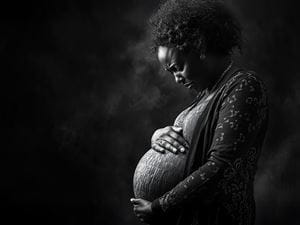
Many religions today seek to strike a balance between their faith tradition’s historic and scriptural stance on reproductive rights and the post-modern world in which contraception and abortion are both common and widely accepted. While it is impossible to say what all practitioners of a given religion believe about the various aspects of reproduction and reproductive rights, what we can speak to are the various “official positions” or “current trends” of some of the major faith traditions. However, the reader should keep in mind that what a religion teaches is not always in harmony with the views or practices of its members.
There are a wide range of opinions on this matter and, as modern history has shown, this topic is an emotionally charged one—with believers on the Left, the Right, and somewhere in the Middle. Nonetheless, this is a significant enough question that, in 2003, Oxford University Press published an entire volume on this very specific subject. Thus, the variety of views on reproductive rights among religious people only goes to show how complex the question is, and how important it is for believers (of any faith tradition) to come to personal conclusion as to how this “hot button topic” pertains to their own religious practice.
Dharmic Religions
Each of the dharmic religions—Hinduism, Buddhism, Jainism, and Sikhism—teach a doctrine called ahimsa (or “non-violence”). As a consequence, each openly teaches that any form of violence to any living being is both reprehensible and forbidden by their respective religious tradition. Jains are the staunchest on how to live the principle of ahimsa, with many practitioners trying to limit their impact on the death of insects and plant life as well. Nevertheless, we will briefly examine individually these four faith traditions and their current views regarding reproductive health.
Hinduism’s scriptures generally speak out against the taking of life, and these passages have traditionally been interpreted as applying to an unborn fetus just as much as they do to another human being. Approximately 80% of India’s population identify as Hindu, and the state tends to favor Hinduism over other religious traditions. And yet, contrary to Hindu teachings, abortion is legal in India.
Some Hindus feel comfortable having abortions if the fetus is not viable, has a congenital condition, or is in its first trimester of development. Not all Hindus see contraception as the taking of life but, instead, see it as the prevention of pregnancy. Thus, while some are against the practice, many embrace the use of contraceptives. Sadly, because males tend to be valued more than females in Hindu culture, it has been somewhat common for parents to practice female feticide when they learn that their baby will be a girl.
Buddhism has many denominations and many views on reproduction. Because this tradition encourages a pacifistic approach to life, and because certain sacred texts suggest that life begins at conception or that life is eternal (with no beginning), abortion and certain forms of contraception have generally been frowned upon in Buddhist circles. For example, Buddhists sometimes argue that the use of forms of contraception that prevent the fertilization of the egg (such as condoms) are acceptable, but those which kill a fertilized egg (such as the “morning after” pill) would be inappropriate.
Also, the current Dalai Lama (Tenzin Gyatso)—who leads the largest of Buddhism’s major denominations—has discouraged abortion, while still saying that its propriety must be determined on a case-by-case basis. Accordingly, in certain predominantly Buddhist countries, a pregnancy that puts the life of the mother in danger has been seen as a justifiable abortion (though some still think that it might be karma-promoting to take the life of a fetus).
Buddhism, with its many factions and its widespread presence, has not really taken an “official” stance or reproductive rights, but the tradition does universally encourage its practitioners to not harm any living thing. How that principle is applied greatly varies from denomination to denomination, and from Buddhist to Buddhist.
Jainism “officially” draws a pretty clear line as it relates to abortion and also regarding the use of contraception—though not all its practitioners will agree with its official teachings on this. Because this faith tradition teaches the importance of non-attachment and self-control, rather than engaging in contraception or medical sterilization, it conventionally encourages abstinence and restraint instead of the prevention or termination of a pregnancy.
As a result of its foundational teachings about the sacredness of human life (along with animal, insect, and plant life), observant Jains typically avoid abortions, in addition to the use of contraceptives. That being said, Jains have a disproportionate number of their practitioners in the medical field. As a consequence, scientifically minded members of this tradition sometimes take a more measured approach to the religion’s “officially” black and white views on reproductive rights.
The newest of the major dharmic faiths is Sikhism. Unlike its sister-traditions, the Sikh faith does not have an “official” position on contraception or abortion. It has taken a position on what it sometimes calls “girl killing” (kuri-mar), largely because of the cultural tendency toward this in India. However, its scriptures—which are the primary source for Sikh doctrine or practice—do not speak to the subject of reproductive health. Thus, while some Sikhs feel like abortion or birth control seek to thwart God’s creative work, there is literally no official position on the matter, and a significant percentage of Sikhs use contraception as well as perceiving abortion as appropriate (if needed).
Judaism
As a religion with several major denominational strains, Judaism has taken a variety of positions on matters of reproductive health. Not surprisingly, the Orthodox sects tend to be more restrained in their use of abortion and contraception, while the more theologically progressive denominations (e.g., Conservative, Reform, and Reconstructionist) tend not only to accept abortion and the use of contraception but also to strongly advocate for the right to both of these. (Statistically speaking, the vast majority of Jews are theologically progressive and are therefore comfortable with most forms of “reproductive health.”)
Generally speaking, however, even Orthodox Jews accept abortion as appropriate when the life of the mother is in danger. Because the Talmud suggests that one is not formally a “person” until one is born, and that during the first “forty days” the fetus is “merely water,” many Jews see abortion as “endorsed” or “acceptable” by virtue of that stipulation. (See Babylonian Talmud, Yevamot 69b) There are a number of passages in Judaism’s canon which seem to speak to the subject of abortion. (E.g., Exo. 21:22-25; Numb. 5:11-31; Jer. 1:5) However, Jewish exegetes do not agree on the meaning of application of these passages and, thus, there is no official position on the matter. While largely the view of some Orthodox Jews, there are those who believe that the Hebrew Bible forbids the use of contraception. (E.g., Genesis 38:9-10) However, birthrates suggest that most Jews consider “family planning” through the use of contraception as totally acceptable.
Christianity
Christianity is so fractured as a religion that the idea of an “official” position on contraception or abortion is simply not possible. Certain denominations, like Roman Catholicism, have taken very clear positions on both matters—though statistics show that the Church’s official teachings surrounding reproductive rights are largely ignored by a high percentage of the Catholic laity today. Eastern Orthodox Christians, and those of the Oriental Orthodox and Evangelical traditions, tend to side with the Roman Catholic Church on abortion, but are less inclined to dictate the use of contraception.
Speaking more broadly, the canon of Christianity does not offer clear direction on the use of contraceptives or having an abortion. The more theologically progressive branches of Christianity (e.g., Episcopalian, Melodist, Evangelical Lutheran, and Presbyterian) tend to be open to abortion, and completely comfortable with the use of contraception.
Islam
Based on the teachings of the Qur’an and the Prophet Muhammad (PBUH), Muslims have long held that abortion as a general practice or as a form of birth control is a sin forbidden by Allah. Islam conventionally holds that life begins at the moment of conception or, according to others, that the “rights” of the embryo begin at conception. (Even Muslims who do not believe that the fetus is a “human” until as late as the 4th month after conception still believe that a person has no right to abort the fetus.)
Hence, abortion is commonly considered the taking of a life by a significant number of practicing Muslims. Certain Islamic sects concede that there might be circumstances in which an abortion is justified (e.g., if a mother’s life is in danger), though others say that it is impermissible under any circumstance. While Muslims in certain countries tend to avoid the use of contraceptives, Islam doesn't formally forbid their use, and this is more of a cultural position than a doctrinal one.
Conclusion
There are faith traditions other than the ones we have examined above which have taken a position on reproductive rights. Most of those fall on the spectrum of doctrinally conservative, though some of the more theologically progressive religions have taken an “official” stance largely so as to ensure access to abortions and birth control for their members.
As things stand today, and in part because of the shift in societal norms and laws relating to reproductive rights, very few religions advocate for penalties for members of their tradition who use contraceptives or who pursue an abortion. The majority of theologically conservative faith traditions continue to advise against abortions (and some even against the use of contraceptives). However, most religions today simply leave this decision to the person, expecting that she will decide what’s best for her—in consultation with her partner, her conscience, and her God. Even faith traditions that have taken a canonical position against abortion or contraception in the past have (today) mostly embraced the position of one 20th century Christian leader, who said, “We do not enter the bedrooms of our members.”
That being said, regardless of where one falls on the various issues surrounding reproductive health, one thing seems pretty consistent on this subject: even the faith traditions that are very comfortable with abortion still tend to emphasize the sanctity of human life.
Progressive, Conservative, and even Middle of the Road religions all seem to agree that life (whenever it “begins”) is sacred and should be thought of as such. There is universal scriptural support for that view—and a sense that this reverence for life necessarily applies to the life and health of the mother as well as to her unborn fetus or child.
6/11/2025 9:57:05 PM








